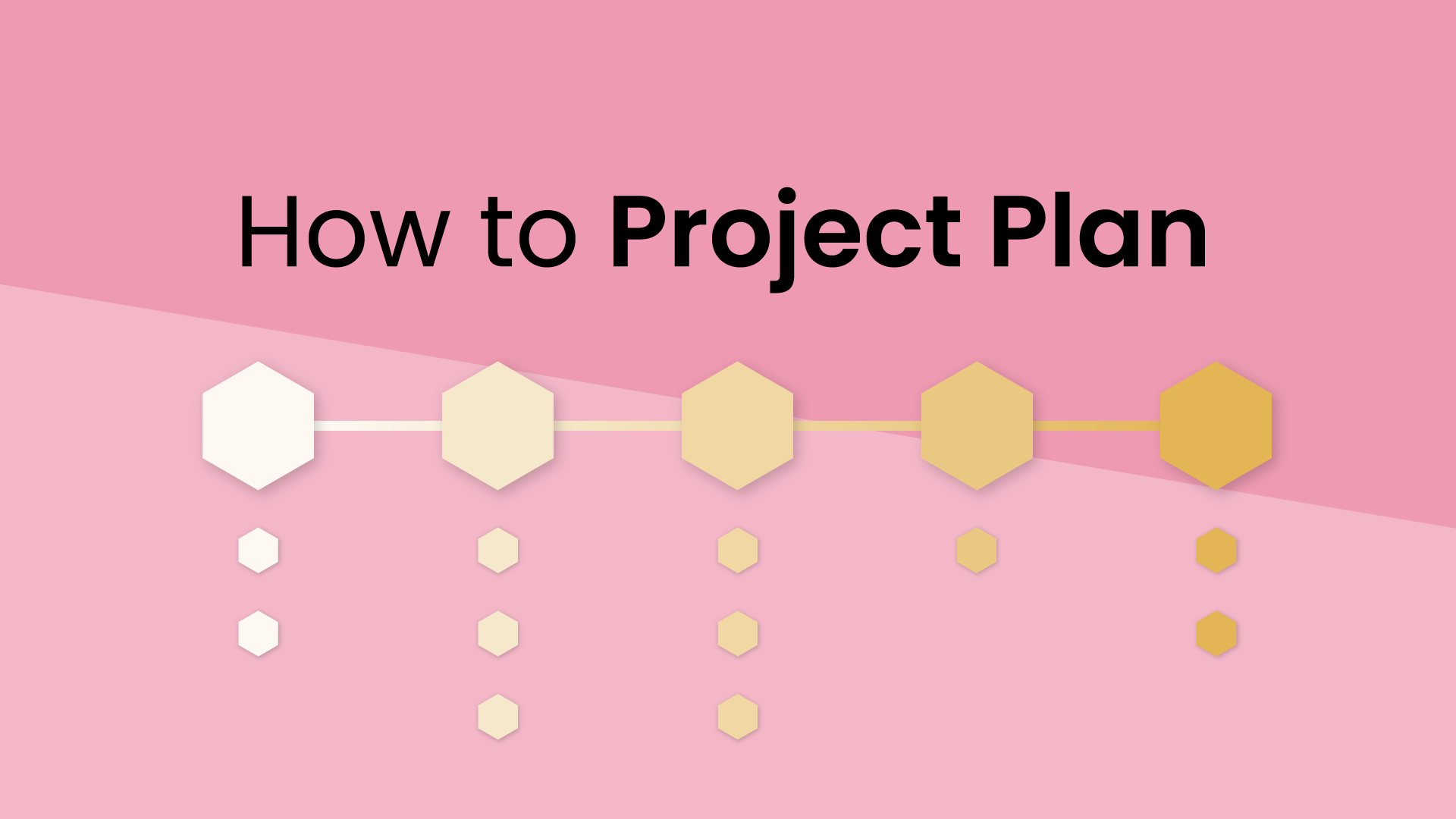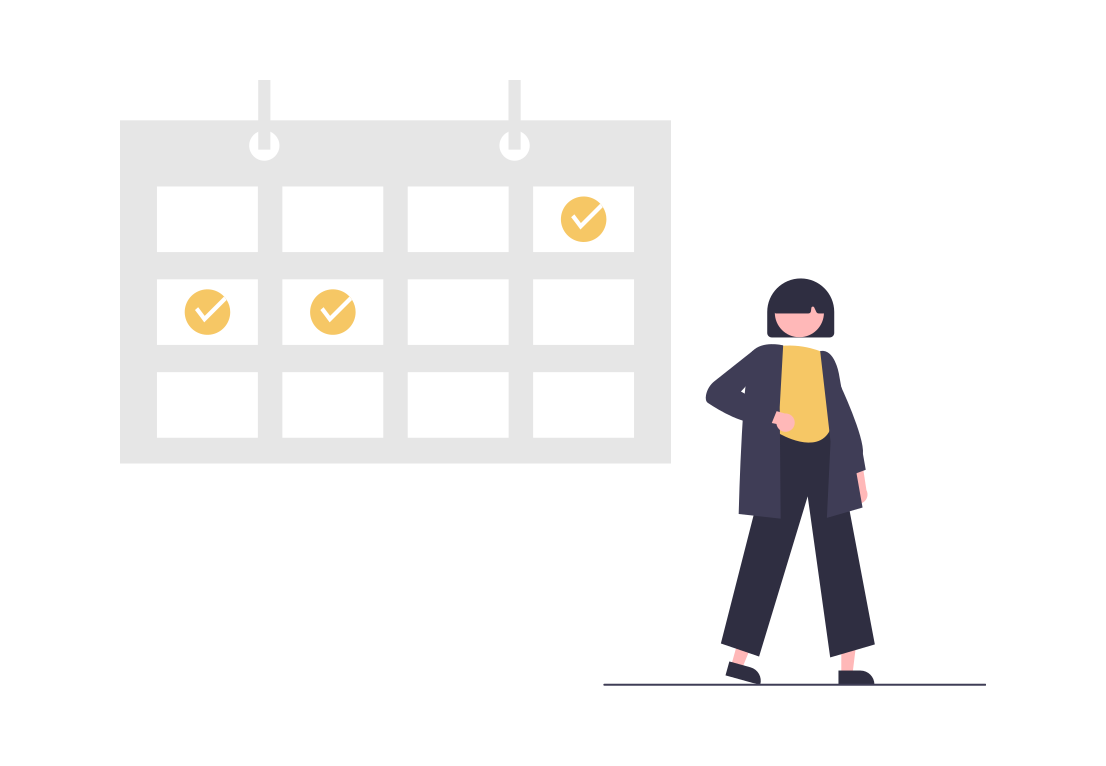

When you think of mental block, you might envision sleepless writers scoffing at their typewriters or tortured painters pacing at a blank canvas. But these psychological blocks aren’t just reserved for the stumped artist.
Mental blocks can plague any professional’s brain and creative process due to decision paralysis, a lack of motivation, an overwhelming workload, or pesky imposter syndrome. Many professionals depend on creative thinking to produce their best work. When left unchecked, these blockages can seriously stagnate productivity and leave even the hardest workers at a dead-end (the proverbial blank canvas if you will).
Maybe you’re stuck on an important project no matter how many times you go over it or are beginning to feel like a total fraud at work because even simple tasks are suddenly harder than they should be. Mental blocks can feel insurmountable when you’re in the throes of a slump, but the good news is there are real ways to overcome them (and avoid mental blocks from taking hold in the future).
In this blog post, we will go over the top causes of mental block and walk through 10 practical tips to regain your productivity and protect your brain from future recurrences.
How to overcome mental blocks – 10 tips
- Work SMARTer
- Make creativity a habit
- Ask yourself "What’s the worst that can happen?"
- Optimize your time
- Clean the clutter
- Address your stress
- Celebrate your successes
- Take a break
- Ask for help
- Break the monotony with a micro-adventure
What is a mental block?
You might be wondering, what exactly is a mental block? A mental block is when you feel obstructed in your thinking and problem-solving abilities. This is also known as brain block, writer's block, creative block, cognitive block, or psychological block. Whether you’re trying to write an impactful blog post, fix a complicated bug, develop an effective marketing strategy, or build out a powerful investor pitch deck – you’re applying creative thinking to be innovative, solve problems, and effectively brainstorm ideas.
When those creative ideas aren’t flowing, it's like you know what needs to get done, but for some reason, the path forward feels foggy or downright inaccessible. You might find yourself staring at a blank screen as the hours pass by, struggling to focus on even basic daily tasks, or suddenly feeling like you have no idea what you’re doing. These are all symptoms of brain block and can affect anyone.
Why do mental blocks happen?
People experience mental blocks for many reasons. If you’ve been feeling stuck, uninspired, or unable to make progress – these top causes of mental block might be to blame.
Top causes of mental block:
- Decision paralysis makes choosing what to work on too overwhelming.
- Mental exhaustion is due to prolonged periods of cognitive overload or stress.
- Procrastination on important tasks then turns into a source of stress.
- Perfectionism is caused by a fear of underachieving or failing at work.
- Cluttered work environment leads to increased levels of stress and anxiety.
- Lack of motivation from ineffective goal planning or low job satisfaction.
- Imposter syndrome about yourself and your capabilities.
- Unhealthy habits like bad sleep hygiene, poor diet, or substance use.
- External factors like medication side effects, socio-political stressors, or personal challenges.
How to spot mental blocks when you see them
Sometimes, mental blocks sneak in quietly. You’re sitting at your desk, ready to tackle the day, but something feels...off. Instead of diving into your tasks, you find yourself staring at the clock, scrolling through emails you’ve already read, or reorganizing your desk for the third time this week. Sound familiar?
The tricky thing about mental blocks is that they often disguise themselves as everyday frustrations or laziness. But spotting them early can help you take action before they spiral out of control. Here are some common signs to watch for:
1. Frequent procrastination
Sure, everyone procrastinates now and then, but when you’re avoiding even the simplest tasks – like replying to emails or updating a spreadsheet – it could be a mental block. If you find yourself endlessly refreshing social media or organizing your apps instead of working, it’s time to ask what’s really holding you back.
2. Sudden forgetfulness
Have you ever walked into a room and forgotten why you were there? Mental blocks can feel like that – but with your entire to-do list. Struggling to recall what you were working on or losing track of ideas mid-thought can signal cognitive overload or stress.
3. Apathy toward goals
Remember when you were fired up about that big project? If that initial excitement has fizzled into “meh,” you might be facing a motivational block. This kind of detachment often stems from burnout or feeling overwhelmed by the scope of your responsibilities.
4. Endless task shuffling
Do you keep bumping the same task to “tomorrow” on your calendar? When mental blocks hit, even routine assignments can feel insurmountable. This “task paralysis” often stems from decision fatigue or perfectionism creeping in.
5. Emotional whiplash
Mental blocks can bring out unexpected emotions – frustration, self-doubt, or even anxiety. If you’re beating yourself up for being “unproductive” or questioning your abilities more than usual, you’re likely grappling with more than just a bad day.
6. The foggy brain feeling
It’s hard to describe, but you know it when you feel it. That sluggish, unmotivated haze where even simple problems seem overly complicated. This cognitive fog and mental fatigue can be a direct result of stress, poor sleep, or pushing through too many tasks without a break.
How to get over a mental block
If you’re currently struggling with a brain block, or the above causes are hitting a little too close to home – here are 12 ways to overcome mental block so you can get back on track and prevent them from derailing your progress in the future.
1. Work SMARTer
When your mental block is caused by an overwhelming workload or decision paralysis about where to begin, breaking down those huge projects into smaller steps can help make them more manageable.
Instead of tackling everything at once, break your goals into bite-sized steps. In other words, try setting SMART (Specific, Measurable, Attainable, Relevant, and Time-bound) daily goals ahead of time.
For example, instead of “finish the report,” a better goal would be “draft the first two sections by 3 PM.” Small wins add up fast, and momentum is a powerful antidote to mental gridlock.
2. Make creativity a habit
Waiting for inspiration? That’s a trap. Doing so can lead to procrastinating on important tasks, time anxiety to finish your work before a deadline, and feelings of self-doubt when that elusive inspiration doesn’t ever ‘strike’.
Like anything, creative thinking can be practiced and strengthened. For example, research has found that writers who made a habit of writing showed the highest level of creativity. Dedicating time in their routine to just write not only increased their overall performance but also increased their creative thinking on future projects.
You can use a productivity tool like Reclaim.ai to block time for your regular Habits and routines around your evolving schedule to automate this process for you. Whether you’re writing creative content or coding new features – consistency over perfection is the key to long-term success.
3. Ask yourself "What’s the worst that can happen?"
Mental blocks often take root in fear – fear of failure, imperfection, or even the judgment of others. This fear tends to spiral, amplifying the task at hand into something that feels overwhelming or unmanageable. But here’s the thing: most of the time, these fears are far worse in our minds than they are in reality.
So, take a step back and confront those feelings. Ask yourself:
- What’s the absolute worst outcome if I proceed and it doesn’t go well?
- What am I truly afraid of happening?
- How likely is that worst-case scenario, really?
Chances are, the "worst" isn’t as catastrophic as it feels. Maybe you worry about delivering a less-than-perfect report, but in reality, your boss might provide feedback to make it better. Or perhaps you’re afraid of trying something new and failing, but that failure could teach you valuable lessons that bring you closer to success.
By naming your fear, you shrink its power over you. You take it out of the shadows and hold it up to the light. And when you do, you’ll often find that the fear is exaggerated or illogical.
Once you’ve identified the worst-case scenario, flip the script: Ask yourself, "What’s the best thing that could happen if I move forward?" Instead of being paralyzed by the fear of “what if,” you start to see the value of “why not.”
4. Optimize your time
Defending time for your important habits is a great start – but you can optimize your time even further by time-blocking all of your priorities in your calendar. Time blocking is the habit of scheduling ‘blocks’ of time in your calendar dedicated to a single task, a practice that can boost your productivity by up to 80%.
Time blocking helps to reduce mental block in a few ways:
- It forces you to plan your day, cutting down on decision fatigue.
- It defends your time for deep work sessions to work on cognitively demanding tasks, or your priority habits.
- It keeps your calendar honest, allowing you to reflect on what you do (and do not) have time for – no sneaky overbooking by pointless meetings or outside requests you take on every week.
- It reduces interruptions by creating transparency around your availability so others can see when you’re busy.
💡 Block time for your most cognitively demanding tasks when you’re naturally most alert, whether that’s 9 AM or 9 PM.
5. Clear the clutter
A messy workspace equals a messy mind. Having a cluttered and disorganized workspace can actually cause stress and lead to mental blocks. Psychologically, seeing visual reminders of disorganization (like a messy desk or crowded desktop!) can actually drain your cognitive resources and compromise your ability to focus.
Set aside time to tidy up your desk at the end of the day, and/or time block a weekly deep-clean habit to organize your physical space and go through your inbox, drives, and desktop. That way you can work more efficiently by knowing where everything is, and enjoy a visually clear work environment to focus on the important things at hand.
6. Address your stress
Stress at work isn’t just an occasional inconvenience – it’s practically a modern epidemic. 78.7% of professionals deal with stress at work due to increasing workloads and shrinking deadlines every week. And the consequences of stress go beyond just wrecked productivity in the workplace. High levels of stress are harmful to your mental and physical health and are a common cause of mental blocks due to fatigue and anxiety.
While you can’t predict every curveball the workweek will throw your way, you can take steps to manage how stress affects you. One of the most effective ways to keep stress in check is by setting firm boundaries around your time and energy. This doesn’t mean shutting yourself off from responsibility; it’s about recognizing your limits. Are late nights at your desk becoming the norm? Make a conscious effort to log off and protect your downtime.
And yes, saying “no” to that extra meeting or project you simply don’t have the bandwidth for can feel uncomfortable at first. But think of it this way: every time you say “yes” to something that stretches you too thin, you’re saying “no” to something that might actually recharge you.
7. Celebrate your successes
Ever feel like a complete fraud or totally incapable of handling your responsibilities? Stress, anxiety, and overwhelm at work can manifest into imposter syndrome – causing crippling insecurity and self-doubt.
Over 80% of adults experience imposter syndrome at some point. And those (untrue) thoughts can sound very convincing when you’re already struggling through a stubborn mental block. That’s why taking the time to celebrate yourself and your successes every day is key to getting through bad weeks.
Consider keeping a record of your daily victories and positive feedback from your manager or team to look back on, or try practicing positive affirmations to keep negative thoughts from taking over your self-talk in the future. You got this. When negativity creeps in, you’ll have proof of your capabilities staring back at you.
8. Take a break
Mental block can also be a symptom of bigger issues, like mental exhaustion or job burnout. If you’re running on fumes from extended periods of excessive stress, are overrun by overwhelming personal issues, or are feeling mentally exhausted in your role alongside the 60.2% of professionals who are burnt out – your mental block is probably a result of cognitive overload.
When your brain is working to process too much for too long, it can actually stop functioning effectively. Taking regular breaks during the day, not overworking every week, prioritizing rest on off days, and actually taking the vacation time you need is foundational to a healthy work-life balance and your work performance. And sometimes, returning to your work with a fresh set of eyes is what makes all the difference.
9. Ask for help
You are not alone in dealing with mental blocks, and if you’re currently struggling, it’s always a good idea to reach out for help.
Share your struggles with a friend, mentor, or manager. Sometimes, an outside perspective is all you need to break through a block. If the situation becomes overwhelming or unmanageable, a mental health professional can be a great resource to work through more complex causes and help you learn how to remove mental blocks that keep you stuck.
10. Break the monotony with a micro-adventure
Sometimes, it’s not the work itself causing the mental block – it’s the sheer sameness of your routine. When every day feels like a copy of the last, your brain can slide into autopilot, making it harder to access creativity or focus. So take a quick micro-adventure.
What’s a micro-adventure? It’s a small, intentional break from the ordinary that adds a dash of novelty to your day without requiring a full-blown vacation. Just like tasting a slice of ginger between sushi rolls resets your taste buds, a micro-adventure clears your mental slate. Afterward, you’re more likely to approach your work with fresh ideas, a lighter mood, and even a bit of excitement.
How to create your micro-adventure:
- Take a sensory walk. Step outside for 15 minutes, but this time, walk with purpose. Notice the smells, colors, and textures around you. Pay attention to how the sunlight hits the leaves or how the pavement feels underfoot. Engaging your senses helps your brain shift out of its default mode and into a more creative space.
- Explore a new café or spot. A change in scenery – even if it’s just a different coffee shop – can stimulate fresh ideas. Surrounding yourself with unfamiliar sights, sounds, and even people can give your brain the gentle jolt it needs to start thinking differently.
- Rearrange your workspace. Something as simple as moving your desk to face a window or adding a plant to your setup can create a sense of novelty. Rearranging your physical environment often leads to a mental shift, making old tasks feel less daunting.
- Try a “daylight escape.” If you’re stuck indoors, step out and find a patch of sunlight, whether it’s a park bench or your backyard. Exposure to natural light and fresh air can elevate your mood and energize your thinking.
Micro-adventures work because they awaken your brain’s reward system, which craves novelty and variety. When you change your environment or routine, your brain releases dopamine – the same chemical associated with motivation and pleasure. This makes it easier to tackle challenges with renewed focus and energy.
Overcome mental block & regain productivity ❤️
Mental blocks can make you feel like you’re barely keeping your head above water, but you can get through a creative rut and avoid falling into the trap of cognitive blocks in the future.
These tips are simple and effective ways to reduce stress, optimize workflows, and improve your behavior patterns both today and long term. Try incorporating one of these new habits into your lifestyle at a time to progressively create sustainable changes that maximize your weekly productivity and support you on those off weeks – which happen to the best of us!
Have a tip on overcoming mental block that we missed? We’d love to hear. Tweet us @reclaimai to share!
Productivity Trends Reports
AI calendar for
work & life
Auto-schedule focus time, meetings, & breaks.
Create your free account →CONNECT YOUR CALENDAR

































